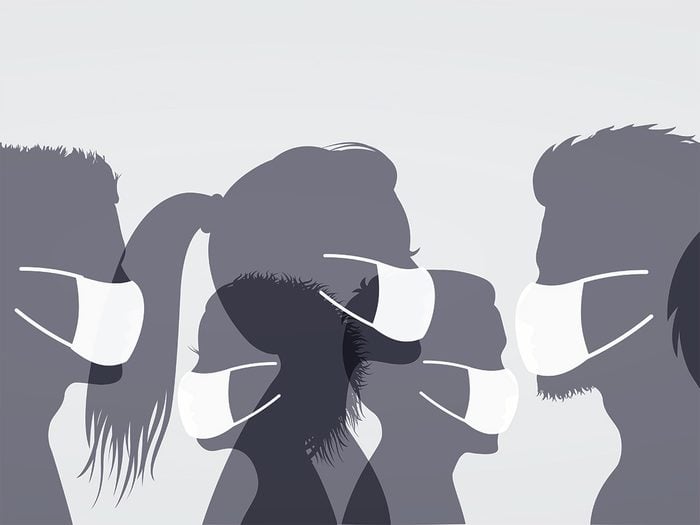Why Words Like “Grief” and “Languish” Have Helped Us Cope with the Pandemic

“Having a common language helps us feel understood and heard, which is important for any sort of recovery.”
Barely a week into lockdown, 16 months or possibly 4,000 years ago, a short article muscled its way into a national conversation dominated by spike proteins and DIY hand sanitizer. Published in the Harvard Business Review, the article had an insistent headline that blazed across Twitter feeds and Facebook walls. It said, “That Discomfort You’re Feeling Is Grief.”
The author proceeded to speak with David Kessler, who co-wrote a book alongside Elisabeth Kübler-Ross (yup, of five-stages-of-grief fame) and had all sorts of useful things to say about acknowledging our racing thoughts, managing our anxiety and exhibiting compassion. But what so many of us fixed on then and still remember now is the relief of putting a name to a roiling emotion. Ah. Right. I’m confined to my house and I can’t see my loved ones and I have no idea when the world will be normal again. Of course what I’m feeling is grief.
(Related: How This BIPOC Mental Health Podcast Got Me Through Covid-19)
About a year—or, who knows, six centuries—later, a New York Times story went stratospheric. It sought to attach a name to the sort of joylessness and stagnation that had characterized the first months of 2021. The writer, a psychologist, rummaged through his emotional dictionary and came back with “languishing”—and the world broke a collective neck with the force of its nodding. For weeks, you could not throw a stick (or a $20 “Don’t mind me…I’m languishing” tote bag, which is a real thing that exists) without hitting a think piece about how perfectly that word captures the emptiness we all felt.
“When you name it, you feel it and it moves through you. Emotions need motion,” Kessler said in the Harvard Review piece. But there’s also something valuable about a word gaining so much traction that it quickly transforms into cultural shorthand. When we see that other people identify just as much with the feeling of languishing, we know we’re not alone. “Having a common language helps us feel understood and heard, which is important for any sort of recovery,” says Natasha Rajah, a professor of psychology at McGill University. “It goes a long way toward healing.”
(Related: “I Was Ashamed I Tested Positive for COVID-19”)
It’s possible, as we begin to transition out of this pandemic, that a new phrase will seize our imagination: post-traumatic growth. It’s a term that’s been kicking around for roughly 25 years, and it suggests that people who manage to make it through adversity can see positive changes on the other side. (It’s also not the same as resilience, which is more about bouncing back than experiencing growth.) Small, early studies out of the U.K., Portugal and Canada have found that COVID-19 has prompted post-traumatic growth.
“People become more altruistic, more spiritual; they are closer with friends and family, and can better contend with stress,” says Steven Taylor, a clinical psychologist and professor at the University of British Columbia. “So it’s not all bleak: Some people are coming out of this unprecedented experience with new appreciations.” Of course, you may not quite be at the point where you’re ready to notice COVID’s silver linings. Until then, come on over and languish with the rest of us instead.




